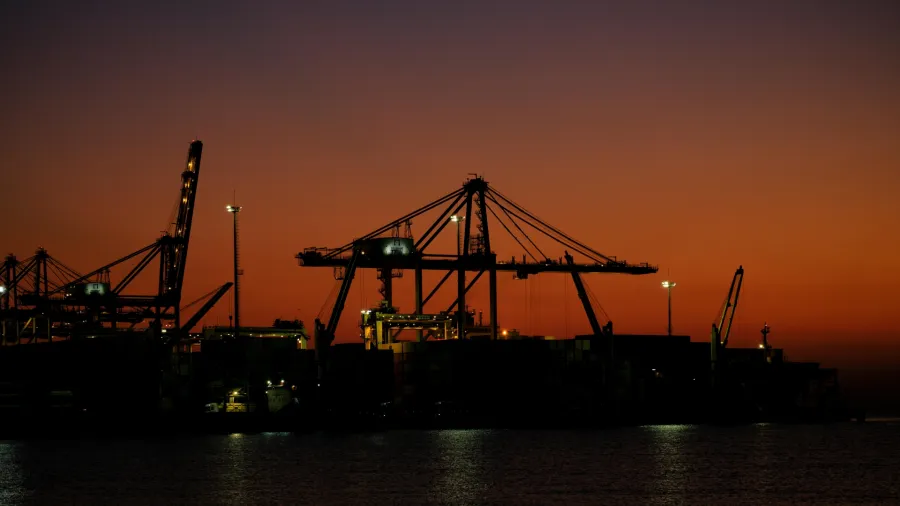
SG completes ship-to-ship bunkering of nearly 1,340 MT of blended methanol
Another simultaneous methanol bunkering and cargo operation for a container vessel is scheduled for the following week.
Singapore completed a ship-to-ship bunkering operation involving close to 1,340 metric tonnes (MT) of blended methanol on 24 May.
Another simultaneous methanol bunkering and cargo operation for a container vessel is scheduled for the following week.
The blended methanol, consisting of 20% ISCC-certified bio-methanol combined with conventional methanol, was supplied by Global Energy Trading Pte Ltd, a licensed bunker supplier.
The bunkering took place ship-to-ship, with the fuel transferred from the dedicated IMO type II chemical bunker tanker, MT KARA, to the newly christened 49,900 DWT IMO II MeMAX tanker, Stena Prosperous, commercially managed by Proman.
The operation, completed within seven hours, also builds upon Singapore's previous achievements in methanol bunkering, including the world's first ship-to-containership methanol bunkering conducted in July 2023.
According to Proman, the blended methanol offers a CO2e saving of 31% compared to the same voyage operated on Very Low Sulphur Fuel Oil (VLSFO), aligning with GHG emissions limits required by Fuel EU Maritime.
The Maritime and Port Authority of Singapore (MPA) is actively developing the methanol bunkering licensing framework and Port Limit Bunker Tanker requirements, alongside technical references for methanol bunkering, including the use of mass flow meters and digital bunkering.
Comprehensive safety measures and emergency protocols were in place, with the Emergency Operations Centre at MPA’s Port Operations Control Centre monitoring the operation using advanced technologies.
Crew members from MT KARA underwent MPA-approved training courses conducted by the Singapore Maritime Academ to ensure the highest safety standards in methanol bunkering operations.
“We continue to learn and enhance MaritimeSG’s ecosystem capabilities from each bunkering operation involving new maritime fuels, in terms of developing new supply chains, enhancing infrastructure support such as terminal facilities and bunker tankers, meeting seafarer training needs, setting standards for bunkering and testing our emergency response plans,” said Teo Eng Dih, chief executive, MPA.



![SBR 5 Lorem Ipsum News 2 [8 May]](https://cmg-qa.s3.ap-southeast-1.amazonaws.com/s3fs-public/styles/exclusive_featured_article/public/2025-05/a_hand_pointing_to_a_futuristic_technology_5b87c9d0e3_3.png.webp?itok=M3Hf-9XR)
![SBR 4 Lorem Ipsum [8 May Top Stories]](https://cmg-qa.s3.ap-southeast-1.amazonaws.com/s3fs-public/styles/exclusive_featured_article/public/2025-05/a_hand_pointing_to_a_futuristic_technology_5b87c9d0e3_2.png.webp?itok=2m5Wl0MX)


![Exclusive three SBR 12 Lorem Ipsum [8 May]](https://cmg-qa.s3.ap-southeast-1.amazonaws.com/s3fs-public/styles/exclusive_featured_article/public/2025-05/a_hand_pointing_to_a_futuristic_technology_5b87c9d0e3_11.png.webp?itok=8kn_UIfA)
![SBR 3 Lorem Ipsum [ Exclusive 2]](https://cmg-qa.s3.ap-southeast-1.amazonaws.com/s3fs-public/styles/exclusive_featured_article/public/2025-05/a_hand_pointing_to_a_futuristic_technology_5b87c9d0e3_1.png.webp?itok=YCyjLegJ)
![SBR 2 Lorem Ipsum [8 May]](https://cmg-qa.s3.ap-southeast-1.amazonaws.com/s3fs-public/styles/exclusive_featured_article/public/2025-05/a_hand_pointing_to_a_futuristic_technology_5b87c9d0e3_0.png.webp?itok=_cKD-29o)

![Video [Event News]](https://cmg-qa.s3.ap-southeast-1.amazonaws.com/s3fs-public/styles/event_news_featured_article/public/2025-05/screenshot-2025-05-08-at-4.58.53-pm_0.png.webp?itok=Kud35sMs)
![Event News SBR 9 Lorem Ipsum [8 may]](https://cmg-qa.s3.ap-southeast-1.amazonaws.com/s3fs-public/styles/event_news_thumbnail/public/2025-05/a_hand_pointing_to_a_futuristic_technology_5b87c9d0e3_8.png.webp?itok=DTh_dbYp)
![Event News SBR 9 Lorem Ipsum [8 May]](https://cmg-qa.s3.ap-southeast-1.amazonaws.com/s3fs-public/styles/event_news_thumbnail/public/2025-05/a_hand_pointing_to_a_futuristic_technology_5b87c9d0e3_7.png.webp?itok=vzDAzb6V)
![Event News SBR 8 Lorem Ipsum [8 May]](https://cmg-qa.s3.ap-southeast-1.amazonaws.com/s3fs-public/styles/event_news_thumbnail/public/2025-05/a_hand_pointing_to_a_futuristic_technology_5b87c9d0e3_6.png.webp?itok=jvHFc4P6)
![Video [Event News]](https://cmg-qa.s3.ap-southeast-1.amazonaws.com/s3fs-public/styles/video_thumbnail/public/2025-05/screenshot-2025-05-08-at-4.58.53-pm_0.png.webp?itok=yZnI0YBb)
![Video 1 SBR [8 May]](https://cmg-qa.s3.ap-southeast-1.amazonaws.com/s3fs-public/styles/video_thumbnail/public/2025-05/screenshot-2025-05-08-at-4.58.53-pm.png.webp?itok=9AAeRz_k)

 Advertise
Advertise

